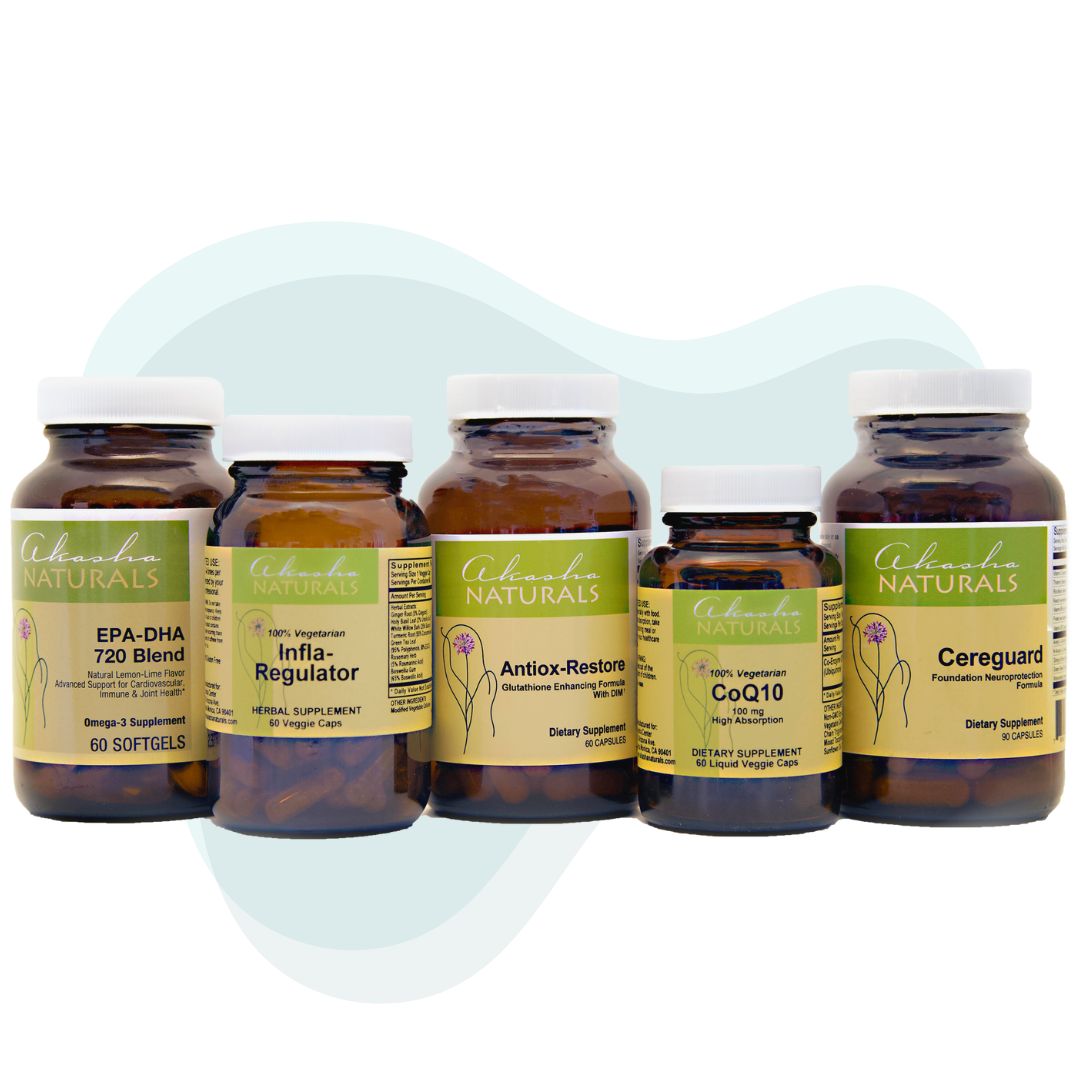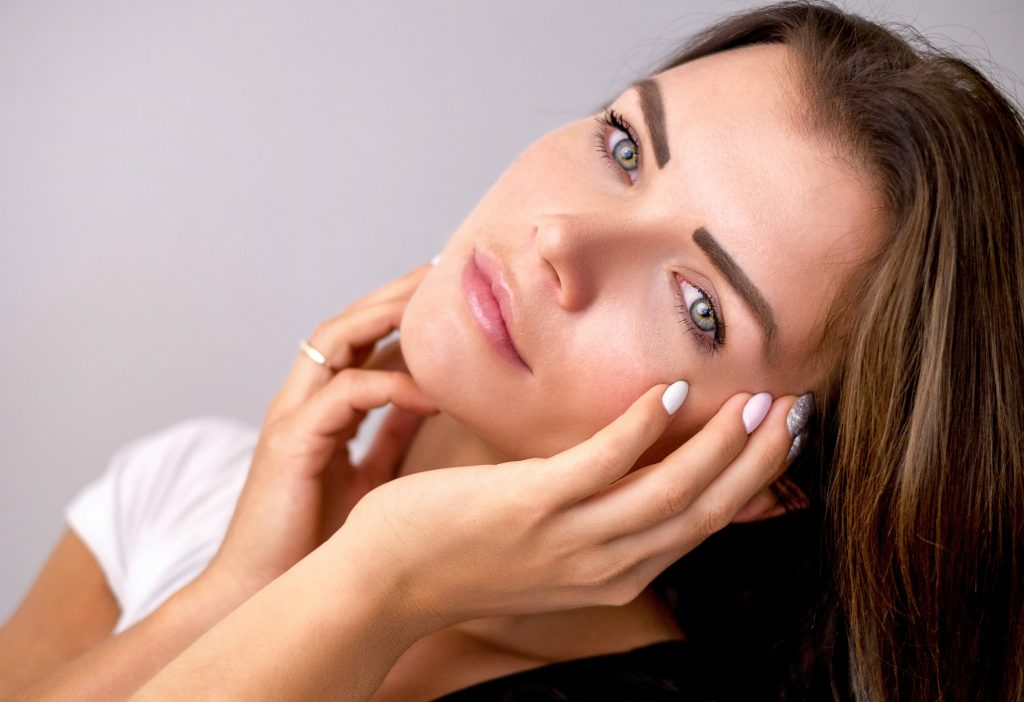If you experience acne before your period, around ovulation, or you are in your 30s and 40s and experiencing acne for the first time (Ugg – so frustrating), it is likely you are experiencing hormonal acne. You may feel like you are in the clear of acne breakouts once passing adolescence, but acne can actually appear at any point in adulthood. The traditional treatments for acne include different topicals (such as benzoyl peroxide, salicylic acid, Retin-A), birth control pills, Spironolactone (a medication originally prescribed for high blood pressure), and Accutane. These medications are aimed at treating the skin only, or in the case of birth control pills and Spironolactone, putting a band aid on an underlying hormonal imbalance. Today, I want to dig a bit deeper and explore how hormones contribute to acne.
Anytime there is a fluctuation in hormones, we can experience acne. That is why acne can flare during PMS (when estrogen and progesterone levels drop), puberty (when there is an increase in androgen production), and perimenopause (where hormones go up and down often in an inconsistent manner). Our androgen hormones include DHEA-S and testosterone. If testosterone is being produced in higher amounts it can contribute to acne. This can be due to diet or PCOS. And, even if testosterone levels are normal, your body may be metabolizing it down a certain pathway (known as the 5 alpha reductase pathway) which produces higher amounts of a metabolite known as DHT. DHT can trigger acne.
Also, an imbalance in estrogen and progesterone can contribute to acne. It really isn’t so much about the absolute amount of estrogen and progesterone but the balance between them. You can have too much estrogen relative to progesterone if you are not ovulating regularly (no ovulation = no progesterone), if you have a microbiome imbalance (which can cause estrogen that is on its way out of the body as poop to be reabsorbed into the body) or if your liver detoxification pathways are not working optimally.
How do you know how your unique hormones are contributing to acne? A thorough health history and hormone testing (blood and urine) can pretty much point to where your imbalance may lie and help to dictate an individualized protocol to address acne from the inside out.
For example, therapies to include if you push testosterone down the 5 alpha reductase pathway (which can be detected through a urine test):
- Increasing dark leafy greens.
- Increasing vegetables.
- Reducing sugar – sugar causes insulin to be released which triggers the ovaries to release more testosterone and sebum.
- Identify and address inflammation in the body.
- Supplements to consider are Zinc, Saw Palmeto, Stinging Nettle Root, EGCG, Pygeum and Reishi.
For healthy estrogen metabolism, attention needs to be directed at your gut and liver. Any microbiome imbalance in the gut must be addressed. Gut health can be assessed with a breath test to rule out Small Intestinal Bacterial Overgrowth and/or a stool test to assess for overall microbiome health which includes looking for dysbiosis (an imbalance of bacteria, yeast, and/or parasites) and inflammation.
Treatment for the gut may include:
- Specialized diet such as an elimination diet, low fodmap, or Autoimmune Paleo
- Pre and Probiotics
- Digestive Enzymes
- Anti-microbials – either herbal or prescription
- Gut Healing Nutrients
For liver health:
- Support phase 1 liver detoxification with: broccoli sprouts, kale, cauliflower.
- Supplements to support phase 1 liver detoxification include Magnesium, Vitamin C, Choline, Methionine, and methylated B vitamins.
- Herbs for phase 1 liver detoxification: milk thistle, sassafras, and dill.
- Support phase 2 liver detoxification with: amino acids (NAC, glycine, taurine, methionine), minerals (molybdenum), glutathione and B12. Cruciferous veggies supply sulfur needed for efficient phase 2 liver detoxification: broccoli, cauliflower, cabbage and brussel sprouts.
Acne can affect someone’s self- esteem, often causing people to not want to be social. So, there can be a place for topical medication in the short term, if people desire. But you can also be doing the deeper work, looking at why your body is producing more acne and using the appropriate therapies to restore balance that contribute to healthy, acne free skin.
There is so much more that we can go into (I didn’t even touch upon diet, food sensitivities, and stress) so if any of this resonates with you and you want to dig a bit deeper into the root causes(s) of your acne, contact us – we want to help!
Dr. Maggie Ney is the director of the Women’s Clinic at the Akasha Center for Integrative Medicine and specializes in women’s health, hormones, and healthy aging.








